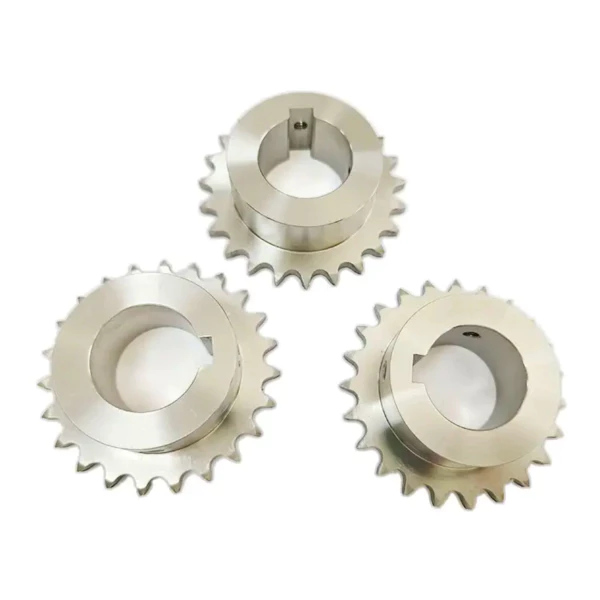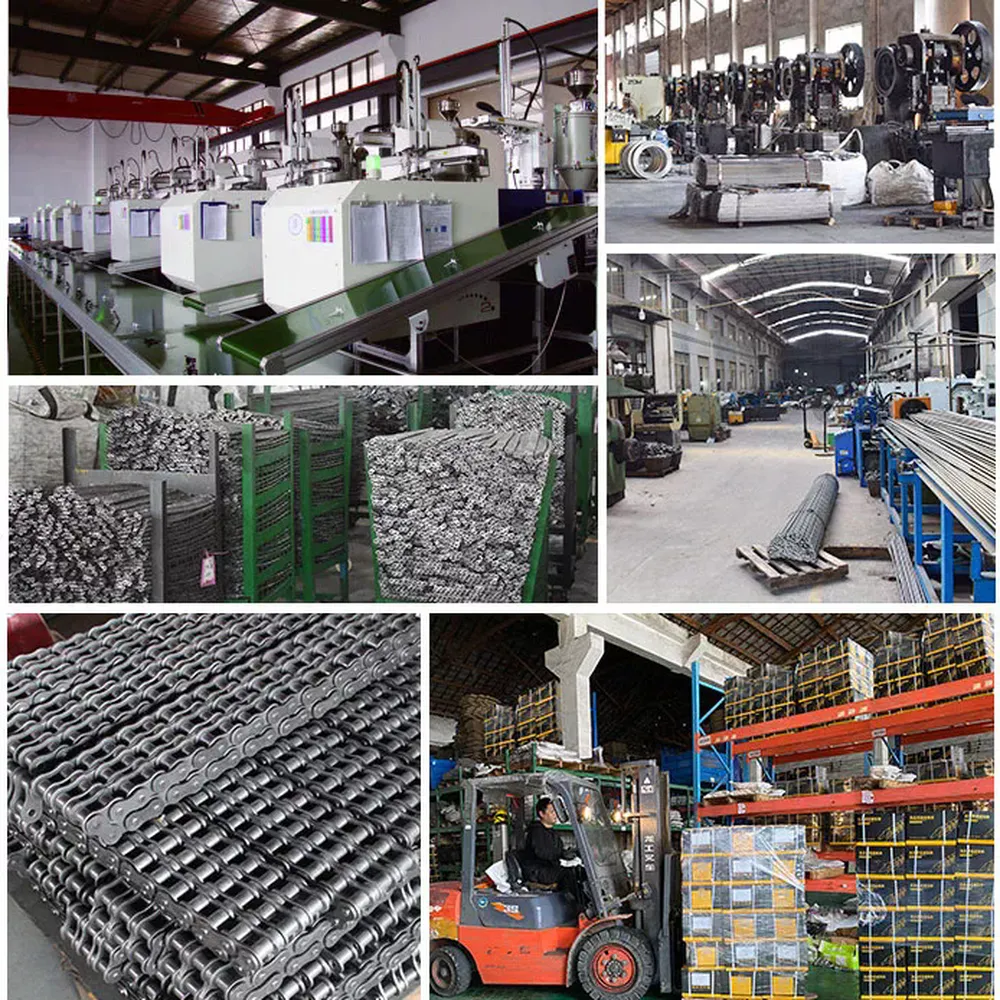Introduction
The RS60 Stainless Steel Sharp Top Chains are specifically designed for tyre manufacturing applications.
These chains provide reliable and efficient performance in the demanding conditions of the tyre production process.
With their unique sharp top design, they ensure precise movement and secure grip on the tyre components.
Chain Specifications
- Material: Stainless Steel (304, 310, 321, 316, 410, 420, 431, 630, 2205)
- Chain Pitch: RS60
- Chain Type: Sharp Top Chain
- Surface Treatment: None
- Working Load: Up to 5000 N
- Temperature Range: -40¡ãC to +400¡ãC
- Link Plate Thickness: 3.6 mm
- Pin Diameter: 9.5 mm
- Breaking Load: 25000 N
Applications of RS60 Stainless Steel Sharp Top Chains
The RS60 Stainless Steel Sharp Top Chains are widely used in various stages of tyre manufacturing, including:
- Tread Building
- Innerliner Application
- Curing Press
- Trimming and Inspection
- Packaging and Distribution
- Mould Cleaning
Why Choose RS60 Stainless Steel Sharp Top Chains for Tyre Manufacturing?
- High Tensile Strength: The stainless steel construction provides excellent strength and durability, ensuring
long-lasting performance in the demanding tyre manufacturing environment. - Precision and Accuracy: The sharp top design of the chains ensures precise movement and secure grip on the
tyre components, resulting in accurate assembly and high-quality finished products. - Corrosion Resistance: The stainless steel material offers superior resistance to corrosion, allowing the
chains to withstand exposure to chemicals and harsh operating conditions in the tyre manufacturing
process. - Temperature Resistance: The chains can operate effectively in a wide temperature range from -40¡ãC to +400¡ãC,
making them suitable for both hot and cold tyre manufacturing processes. - Low Maintenance: The RS60 Stainless Steel Sharp Top Chains require minimal maintenance, reducing downtime
and increasing productivity in the tyre manufacturing facility.
Common Fault Analysis and Maintenance of RS60 Stainless Steel Sharp Top Chains
- Fault: Chain Elongation
- Diagnosis: Check the chain for wear and elongation using a chain gauge.
- Solution: Replace the worn chain with a new one and adjust the tension properly.
- Maintenance and Replacement: Regularly lubricate the chain and monitor its wear condition. Replace
the chain if it exceeds the wear limit specified by the manufacturer.
- Fault: Chain Misalignment
- Diagnosis: Inspect the sprockets and chain alignment to ensure proper engagement.
- Solution: Adjust the sprockets and chain alignment to ensure smooth movement and reduce wear.
- Maintenance and Replacement: Regularly check and adjust the sprocket alignment. Replace any
damaged sprockets or chains.
- Fault: Chain Breakage
- Diagnosis: Examine the chain for any signs of cracking or damage.
- Solution: Replace the broken chain with a new one and ensure proper tension.
- Maintenance and Replacement: Regularly inspect the chain for any signs of wear or damage. Replace
worn or damaged chains immediately to prevent further breakage.
Choosing and Customizing RS60 Stainless Steel Sharp Top Chains
When selecting or customizing RS60 Stainless Steel Sharp Top Chains for your specific application, consider the
following parameters and conditions:
- Chain Pitch: Choose the appropriate chain pitch for the specific machinery and production requirements.
- Working Load: Determine the maximum load that the chain will need to withstand in the application.
- Temperature Range: Consider the operating temperature range to ensure the chain’s material can withstand
the conditions. - Chemical Exposure: If the chain will be exposed to chemicals, select a material with high corrosion
resistance. - Speed and Accuracy Requirements: Assess the desired speed and precision of the chain movement to select a
chain with suitable design features.
Stainless Steel Sprockets for Sharp Top Chains
The RS60 Stainless Steel Sharp Top Chains are complemented by our range of stainless steel sprockets.
These sprockets are specifically designed to work seamlessly with the sharp top chains, ensuring smooth and
efficient operation in tyre manufacturing applications.
About Our Company and Recommended Stainless Steel Sharp Top Chains
Our company is a leading manufacturer of stainless steel chains, specializing in design, manufacturing, and
sales. We offer a wide range of stainless steel materials, including 304, 310, 321, 316, 410, 420, 431, 630,
and 2205, to meet various industry needs. Our stainless steel sharp top chains are widely used in food
processing, pharmaceutical, chemical, electronics, appliances, automotive, machinery, metallurgy, and wastewater
treatment industries. We also provide professional customization services based on customer specifications.
Our products are exported to Europe, America, Southeast Asia, and other regions. We encourage customers to
explore our products and contact us for purchases.
Q&A
Q: How often should the RS60 Stainless Steel Sharp Top Chains be lubricated?
A: The lubrication frequency depends on the operating conditions and the manufacturer’s recommendations. In
general, it is recommended to lubricate the chains regularly, preferably after every 50-100 hours of
operation or as indicated by the chain manufacturer.
Q: Can the RS60 Stainless Steel Sharp Top Chains be used in high-speed tyre manufacturing processes?
A: Yes, the RS60 Stainless Steel Sharp Top Chains are designed to withstand high-speed applications in tyre
manufacturing. However, it is important to ensure proper tension and alignment to prevent excessive wear and
extend the chain’s lifespan.
Q: Can the RS60 Stainless Steel Sharp Top Chains be used in wet or corrosive environments?
A: Yes, the stainless steel material provides excellent corrosion resistance, making the RS60 Stainless Steel
Sharp Top Chains suitable for wet or corrosive environments. However, regular maintenance and proper
lubrication are essential to ensure optimal performance and prevent premature wear.
Edited by Zqq






